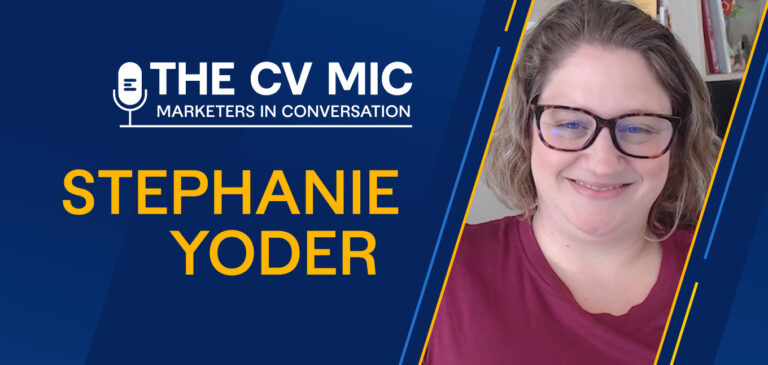When it comes to self-improvement, we like our coaches. A savvy spiritual guide. The CrossFit trainer who squeezed an extra six reps out of you. The little league coach who taught your kid how to hit. Generally, we’ll take good advice where we can get it.
Having a career coach is not much different, and it’s where people like Darrell Gurney (aka The Career Guy) have made a living, whipping our dreams into shape, pushing us toward our potential, inspiring us to do things that don’t come natural. You may’ve seen Gurney’s name in the past on Fortune.com, MarketWatch or other media sites. He’s coached “thousands,” written a few books and created sites like TheBackForty.com, to help some fulfill their midlife purpose. His purpose? To show us that if we’re open to a fresh perspective and willing to do the work, a career breakthrough could be waiting for us right around the corner.
That’s how Gurney landed on my radar. I’d heard good things from a friend who recently did a 90-minute career coaching session with him. And, given the launch of CV Portfolios, it seemed his insights could benefit ClearVoice followers and those who primp their portfolios everyday, putting their best pixels forward while sometimes flying blind without a game-plan or strategic approach.
Here are nine tips I carved out from our interview – practical reminders for how to position your freelancing business for success.
Tip #1: Branding and results rule the day.
Gurney: When it comes to resumes or how you describe yourself [in a portfolio or otherwise], branding is critical. So how do you stand out? You definitely don’t want your personal brand to say, “I’m just another freelance copywriter or freelance video editor.” What’s something distinct about the way you work and the way you do things? The more you can really nail who you are – and your brand – and have that on your website and in your language, you’ll be better off. Accomplishments always carry the day, whether in a resume or on a site. So, what are the specific measurable results you produce? Tell me the difference your work makes… versus it just being a description of what you do.
Tip #2: Identify what differentiates you.
Gurney: You can be the same person in the same job in adjoining cubicles, but each of those people have a unique way of doing things that makes them successful. And no two are alike. Though I wish I could give a pill that delivers people’s personal brand immediately, it’s just important to see how you do things and notice the patterns underneath your successes. And it’s hard for anyone to do a double-take on themselves quick enough to be able to see themselves as an observer. So I would say connect with somebody, a coach or someone who can see you the way you can’t see yourself, so as to discover those patterns. And then promote those patterns. Don’t think you’re always going to see your blind spots… That’s why they’re called blind spots.
Tip #3: Become a thought leader.
Gurney: Freelancers are business people. They’re not applying for a job in the sense of putting in a resume and sending it off somewhere. When I coach business people, I talk about creating thought leadership. That is, if someone is a business person and they want a business to come to them, they shouldn’t just sit around waiting with their website and materials. What they can do is become a conduit of information. You don’t have to be an “expert,” you just have to lead the thought. In other words, you’re doing this right now for ClearVoice, but I’ve had clients who do this and actually post on LinkedIn, which has them show up as a thought leader. It starts to associate them with experts and becomes a platform that shows they’re beyond the average.
Tip #4: Create traffic for yourself.
Gurney: For freelancers posting their stuff, it’s important to find ways through blogs, Huffington Post, or wherever, to be shown as a thought leader, because this then allows them, in their byline, to direct people back to them and their services. When it comes to getting noticed, you’ve got to create traffic. Let’s say somebody is a copywriter. There are historically some incredible copywriters out there… stars. And guess what? Stars have egos, too. Reach out to some stars and say “I’m writing a blog on the best copywriters of all-time. Can I interview you?” You then interview them and soon have a series of 20 blog entries or articles to post on LinkedIn. What are you doing? You’re associating yourself with them and creating content that sends traffic your way.
In other words, it can’t just be reactive…
It has to be proactive.
Tip #5: Recent samples are huge.
Gurney: When it comes to building a portfolio, I kind of consider it like dating, or Match. If you’re going to put your hot pictures from five years ago, I’m sitting here thinking… Well, what do you look like now? Where are those pictures? Anytime I’ve ever been on freelancer sites, I always look to see the date of the most recent work. A lot of the time, the way some of those things are structured has a real cryptic description around a job they did for a company. I can’t see what it looked like. Try to avoid that.
Tip #6: Get your movie trailer pitch down.
Gurney: Not only do you want your branding to come out in your resume and portfolio, but it’s important to know that you’re going to give your verbal resume way more than you’ll ever give your written one. When I work with people on their verbal resume, their branding and the way they speak to themselves, I teach them to make it sound like a movie trailer. Powerful, bold and compelling, but concise enough to make people want to know more. To be able to express your verbal brand or who you are is critical… and pretty much the same as how you should present yourself in your materials such as an online resume or portfolio.
Tip #7: Try not to commit these mistakes…
Gurney: When writing about your qualifications, never use personal pronouns (I, you, he, she, etc.) and always speak in the third person, as if someone’s writing an article about you. And remember not to share too much personal information. Show yourself as sociable and community oriented, but if you put too much personal information in there, you can turn off certain folks because they don’t believe in what you believe in. And don’t tell me how many kids you have either.
Tip #8: …And don’t go back more than 15 years.
Gurney: If you’re talking about a silver bullet resume as the thing that’s going to get you in the door, don’t go back more than 15 years. Just say “additional experience” for everything below that. And don’t put the years you graduated college either. Ageism through “the front door” (i.e., job sites) will kill you, even though it’s illegal, it will kill you. Because you won’t know what they’ll be making their decisions based on. But though the “back door” of relationship building, ageism falls aside. That’s when people get to know you for who you are, and your value, and are not making initial screening determinations based on how old you are.
Tip #9: Think of yourself like a 5-Star Yelp business.
Gurney: Anybody who’s going to be hiring a freelancer is going to want to know that integrity and accountability are there because they’re really taking a risk. Of course they can hire another one later if they didn’t do the work, but it’s still wasted time. So I think anything that shows a drive toward excellence, a commitment toward integrity and accountability is a good thing. The more a freelancer can show they operate in a-five-star-Yelp-review-fashion, the more comfortable I’m going to be.
Good luck!
Feeling inspired? Head over to your CV Portfolio and put all these new insights to work to better position your brand.







